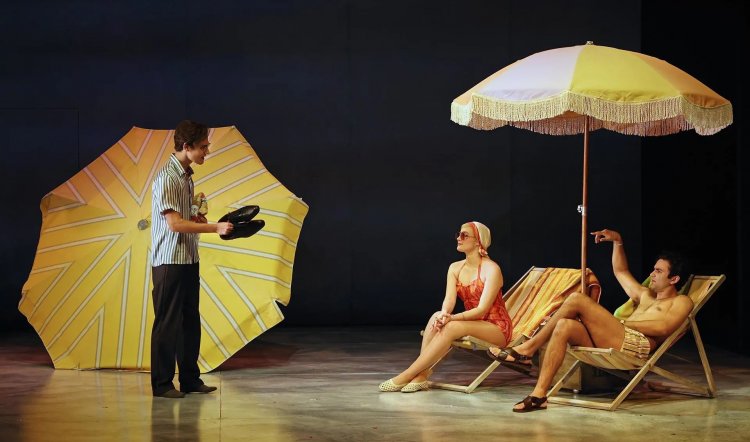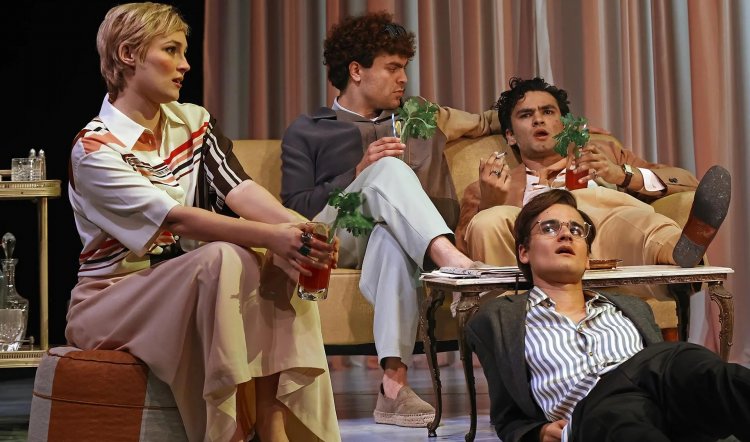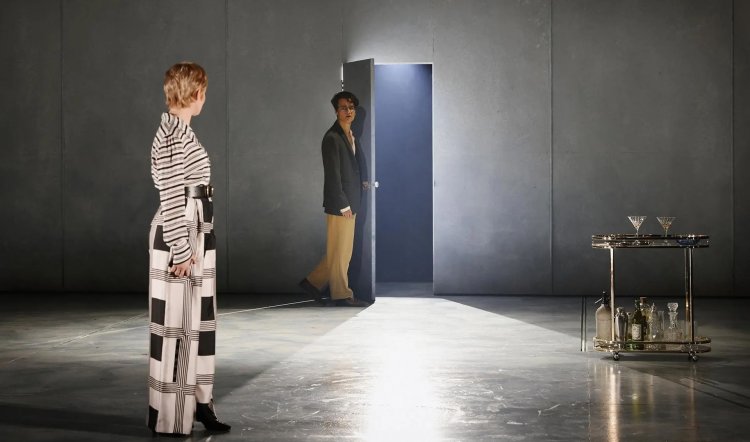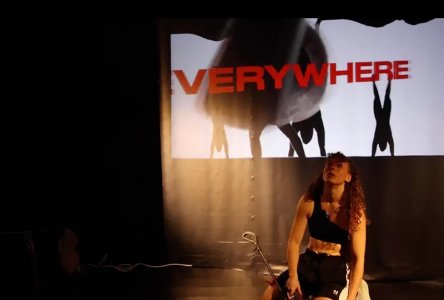
THE TALENTED MR RIPLEY
THE TALENTED MR RIPLEY, Sydney Theatre Company at the Roslyn Packer Theatre, 23 August-28 September 2025. Photography by Prudence Upton
In a recent interview in the Fin Review, playwright Joanna Murray-Smith says of her anti-hero: “Ripley is someone that any of us might be. Most of us have wanted to be someone else at various times in our life. Most of us present ourselves in a particular way for a particular audience, subtly changing ourselves to pass muster in social situations. That’s all Ripley, although of course he goes too far.”
But does he? He’s said to be a “serial killer,” but Tom doesn’t kill for the known motivations of such a murderer. Rather, Murray-Smith’s adaptation of Patricia Highsmith’s 1955 novel, and Will McDonald’s sustained, nuanced performance, draw a portrait of the young grifter that, if not exactly sympathetic, does make his reasons for homicides seem inevitable.
Director Sarah Goodes, set designer Elizabeth Gadsby, and lighting designer Damien Cooper combine to open on a film noir moment before flooding the stage with empty space, shadows, mote-swirling beams of light. And a handheld electric table fan for the Cary Grant/To Catch A Thief fluttering scarf vignette. It’s cheekily amusing and makes plausible the drama and violence. These build from the properly desultory beginning.
Tom Ripley is a low-level chancer living in New York City with an eye out for any easy con that might come his way. He’s charming, good-looking, and self-aware, so it’s not too difficult, although he does have to nimbly stay ahead of being rumbled. His luck and life change when he’s approached by wealthy industrialist Herbert Greenleaf (Andrew McFarlane in the kind of dead cat wig so often affected by otherwise astute rich men) to travel to Italy and entice home his indolent son, Dickie, of whom Herbert believes Ripley to be a friend. Ripley doesn’t disabuse him.

The first encounter between Tom and Dickie (Raj Labade) on a Riviera beach is excruciating in what it reveals of Ripley’s threadbare truth and the young Greenleaf’s debonair cruelty. Watching on is Dickie’s chum of the day, Marge Sherwood (Claude Scott-Mitchell). The scene is sweaty with Mediterranean sun and human discomfort, and with its gelato-coloured umbrellas, is also perversely beautiful.
Ripley falls in love: with the lush, louche life, with Dickie’s idle charm, with his clothes, with the seemingly endless possibilities that money and entitlement bring. Clothes are a thing in this milieu, and costume designer Emma White hits all the right notes of post-war, mid-50s chic for Dickie and Marge, while Ripley itches in all-wrong flannels. Making up the company is Johnny Nasser as the blue serge policeman Roverini, and Faisal Hamzi as Dickie’s jovial bestie Freddie Miles.
The ensuing days, as Ripley enmeshes himself in the hedonism, he realises Dickie has no intention of leaving, are revealing of Highsmith’s angry ambivalence towards her own sexual identity. Ripley is easy to despise from Dickie’s point of view, while Dickie is equally repellent from across the footlights. Sarah Goodes toys with homoeroticism as Dickie toys with Ripley. And Marge grows ever more suspicious of the guest.
By the time Dickie declares himself bored by Ripley and intent on discarding him, Ripley is in love not only with the man but with the life of idle money and fun. An oddly jarring episode in a nightclub, of pumping disco and dancing between the two, illustrates both the attraction and aggravation that propel them. Ennui is a powerful irritant. Similarly, the casual withdrawal of everything he now holds dear is an even more powerful incitement – to murder – for Ripley.

Happily for us – and Ripley – when Highsmith wrote the story, there was precious little technology available to detect such things as his assuming Dickie’s identity via passport, bank accounts, and signature. Avoiding those who knew the mysteriously incommunicado Greenleaf heir is the black comedy of the latter part of the play’s two and a bit hours.
Anyone thinking there can’t be more to wring from the much revisited Highsmith classic should see this fresh new take. It’s good enough to make it immaterial whether or not you’ve seen Andrew Scott on Netflix or still feel loyal to Matt Damon and Jude Law. This latest partnership between Joanna Murray-Smith and Sarah Goodes is scintillating in its simplicity and thrilling as non-stop entertainment with multiple plausible reasons for murder.

-c444x300.jpeg)

